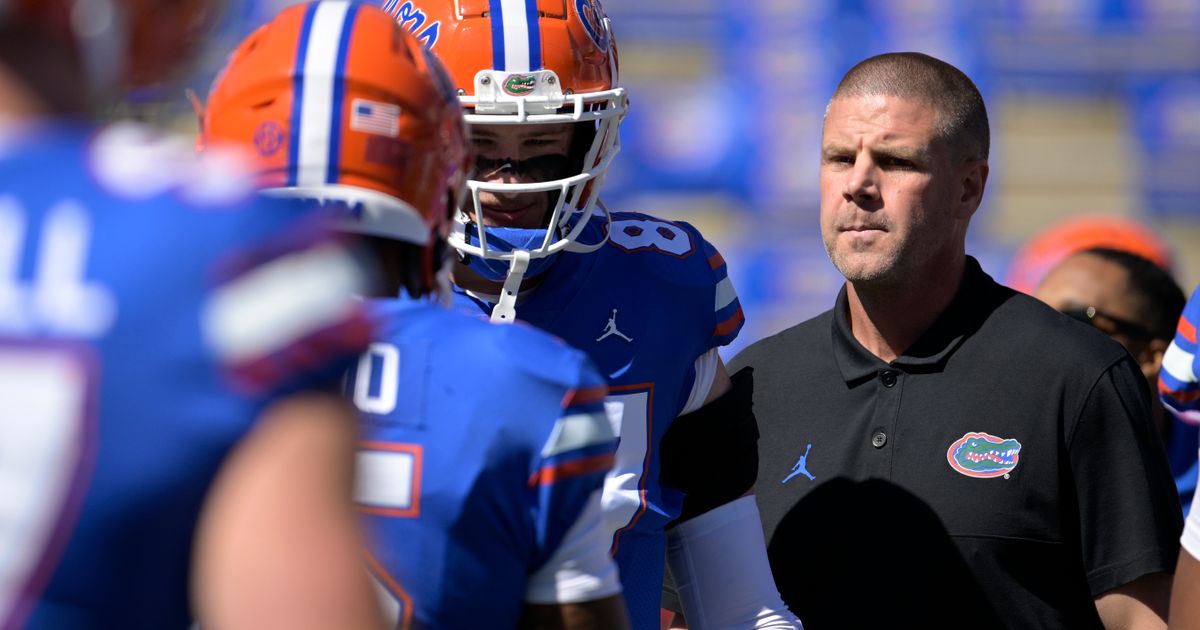
GAINESVILLE, Fla. (AP) — Highly touted high school quarterback Jaden Rashada is moving on from Florida, a breakup that was weeks in the making and cost the Gators one of their most prized recruits.
Florida officially granted Rashada a release from his National Letter of Intent on Friday, three days after he requested to be let go.
Rashada’s decision came after the Gator Collective — an independent fundraising group that’s loosely tied to the university and pays student-athletes for use of their name, image and likeness — failed to honor a four-year deal worth more than $13 million, according to a person familiar with the situation. The person spoke to The Associated Press on condition of anonymity because neither side acknowledged the split publicly.
The high-profile case will, at the very least, prompt changes at Florida. It also could lead to a lawsuit and potentially an NCAA investigation.
WHAT HAPPENED?
Rashada switched his verbal commitment from Miami to Florida on Nov. 10. Rashada, his representatives and the Gator Collective had presumably agreed to terms on a lucrative NIL deal at the time of his flip.
One of Florida’s top boosters, millionaire businessman Hugh Hathcock, tweeted “Tomorrow will be a Great Day Gator Fans!!!” the night before Rashada’s announcement. The following day, less than five hours before Rashada publicly announced his flip, Hathcock tweeted “All Good!!! Just a little longer!!!”
The deal fell apart less than a month later. The Athletic reported that Gator Collective CEO Eddie Rojas sent a termination letter to Rashada and his reps on Dec. 7. It’s unclear why the deal crumbled, but a source with knowledge of the negotiations told the AP that not all of the financial backers were aware that the signed deal had increased from roughly $5 million over four years to more than $13 million.
Rashada failed to enroll with other signees days after playing in a Jan. 3 all-star game in nearby Orlando. The 19-year-old eventually returned to the West Coast.
WHO IS RASHADA?
Rashada is a five-star QB prospect from Pittsburg, California, who is ranked 29th overall by 247Sports in the 2023 recruiting class. His father, Harlen Rashada, played defensive back at Arizona State (1992-94).
The 6-foot-4, 185-pound Jaden Rashada threw for 5,275 yards at Pittsburg last season, with 59 touchdowns and 18 interceptions.
His initial decision to come to Florida was considered a boon for first-year Gators coach Billy Napier, and Rashada was expected to compete with Wisconsin transfer Graham Mertz for the starting job at Florida, which has now lost five scholarship quarterbacks in the past 10 months. Starter Anthony Richardson left early to enter the NFL draft, backup Jalen Kitna was dismissed following his arrest on child pornography charges, and Emory Jones and Carlos Del Rio-Wilson transferred last spring.
Florida also had its eye on Tulane’s Michael Pratt and Wake Forest’s Sam Hartman, but Pratt ended up back at Tulane and Hartman landed at Notre Dame. The Gators also missed out on former LSU quarterback Walker Howard, who is transferring to Mississippi despite a lengthy relationship with Napier.
WHAT’S NEXT?
Rashada is free to enroll elsewhere without having to enter the transfer portal. He already has been linked to Arizona State and Washington.
What remains to be seen is whether Rashada sues the Gator Collective, along with possibly the athletic department and the university, in hopes of getting at least part of the $13 million he was promised. He could conceivably ask for more if he believes his reputation was damaged.
The Gators still could use help at the all-important QB position with just three scholarship quarterbacks: Mertz, Miller and redshirt freshman Max Brown. The bigger question: How will Rashada’s failed recruitment affect future prospects?
WHAT’S THE POTENTIAL FALLOUT?
Florida already plans to encourage its collectives to make changes, with one potential one being a merger between the Gator Collective and the more exclusive Gator Guard. Personnel moves within the collective also are expected.
The NCAA might investigate, too. The sanctioning body has rules regarding NIL deals. Boosters and NIL entities are not allowed to engage in recruiting conversations or activities regarding prospective student-athletes, and no promises can be made between family members and boosters or NIL entities that are contingent on the prospective student-athlete’s enrollment at an institution.
Collectives have circumvented those rules with zip code clauses, according to Florida-based attorney Darren Heitner, who works with the Gator Collective. The clauses use contract language to stipulate that student-athletes must reside in a certain jurisdiction for agreements to be payable.
___
AP college football: https://apnews.com/hub/college-football and https://twitter.com/AP_Top25 Sign up for the AP’s college football newsletter: https://apnews.com/cfbtop25